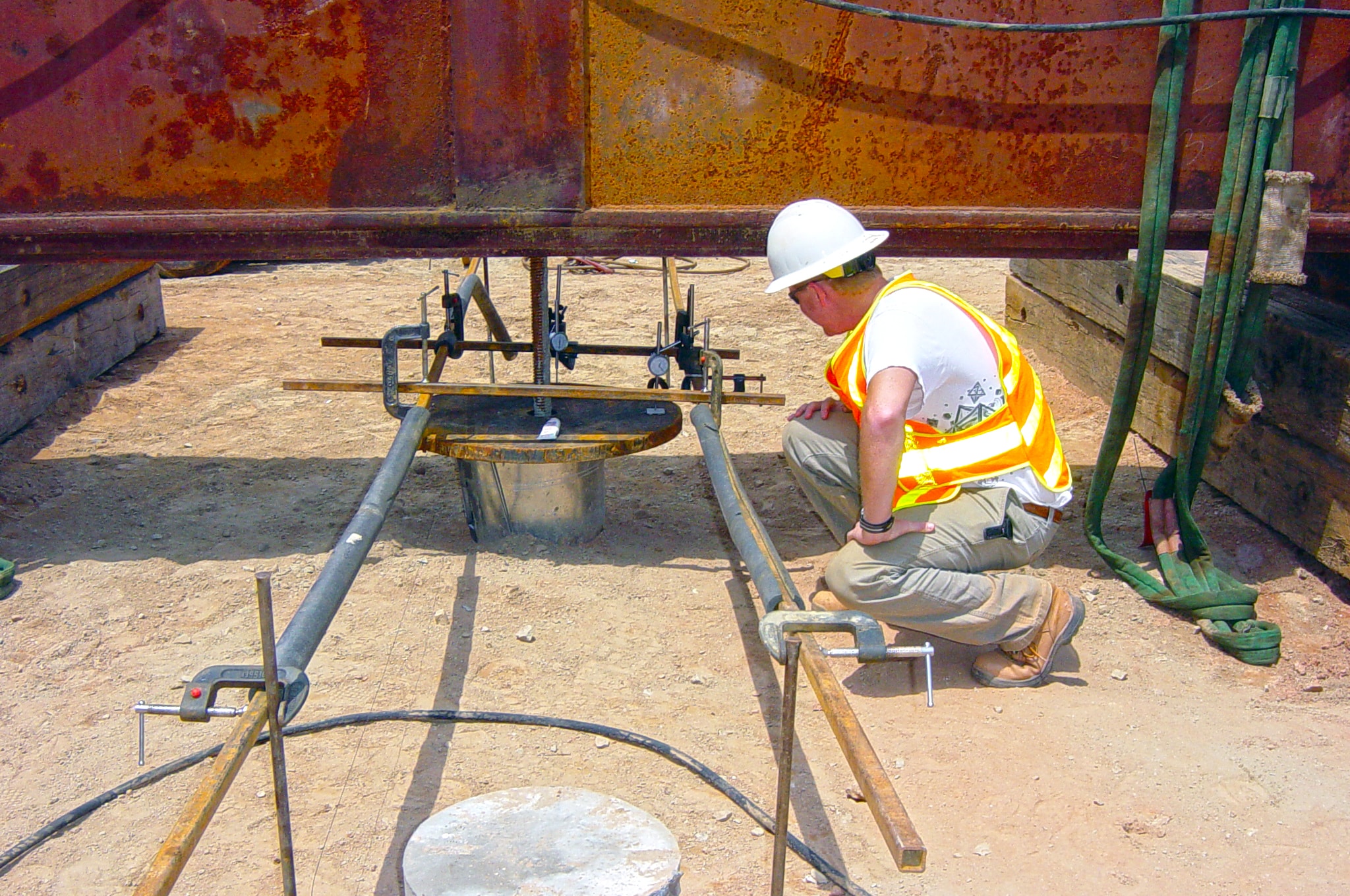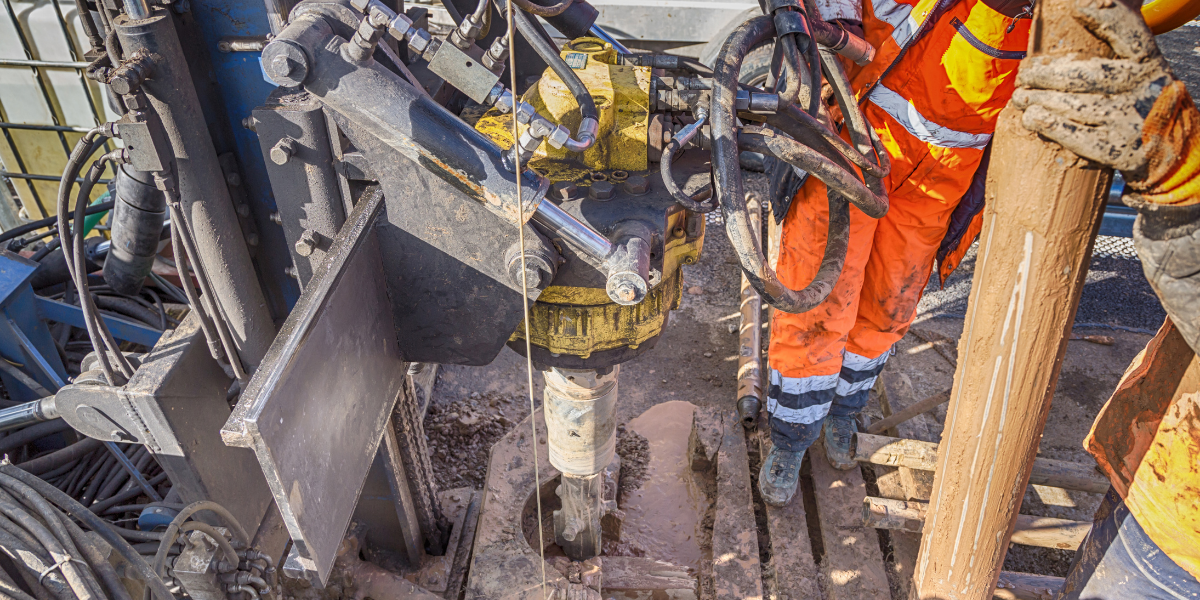Crucial Qualities of Effective Civil Consulting Engineers
Crucial Qualities of Effective Civil Consulting Engineers
Blog Article
An In-depth Overview of the Key Obligations of Geotechnical Designers in Site Characterization and Ground Enhancement Strategies for Design Solutions
Geotechnical engineers are indispensable to the successful execution of design jobs, charged with the vital duties of site characterization and the application of ground enhancement methods. Their job entails a detailed evaluation of subsurface problems, utilizing numerous testing methods to determine dirt and rock residential or commercial properties.
Role of Geotechnical Designers
Geotechnical designers play a pivotal function in the style and building and construction of framework by analyzing the actions of soil and rock below the surface area - civil consulting engineers. Their responsibilities incorporate reviewing subsurface problems to inform layout decisions that guarantee structural stability and security. By performing comprehensive evaluations of soil homes, including shear leaks in the structure, toughness, and compressibility, geotechnical designers give essential data that influences the selection of suitable building products and methods
In addition to evaluating dirt mechanics, geotechnical engineers are tasked with determining possible hazards such as landslides, sinkholes, and ground negotiations. Their experience aids minimize threats associated with these geotechnical phenomena, thus shielding both the atmosphere and public safety and security. They additionally collaborate very closely with various other design disciplines, guaranteeing that geotechnical considerations are incorporated into overall job design.
Additionally, geotechnical engineers participate in the examination of existing frameworks, supplying suggestions for retrofitting and fixings when necessary. Their thorough understanding of soil-structure communication is necessary for the advancement of lasting framework solutions. Overall, the duty of geotechnical designers is important to the effective awareness of building and construction tasks, ensuring they are secure, long lasting, and compliant with regulative standards.

Website Characterization Processes
Efficient site characterization processes are necessary for understanding the subsurface problems that affect project layout and execution. Geotechnical engineers utilize an organized strategy to gather, evaluate, and interpret information regarding dirt, groundwater, and rock characteristics. This process starts with a complete testimonial of existing literature and historic site information, providing insights right into previous website problems and possible obstacles.

Data evaluation adheres to fieldwork, where designers use geostatistical approaches to analyze findings and create geological designs. With persistent website characterization, geotechnical designers lay the groundwork for successful project implementation, optimizing and reducing unforeseen complications source allowance.
Dirt and Rock Screening Methods
While recognizing subsurface problems is important, the option of proper soil and rock screening methods is equally important for precise analysis and style. Geotechnical engineers use a range of testing methods to evaluate the mechanical and physical residential properties of soil and rock materials.
Laboratory examinations, such as Atterberg restrictions, grain size evaluation, and unconfined compressive toughness examinations, offer crucial data on soil behavior under different moisture problems and filling circumstances. These tests help identify dirt classification and forecast settlement or shear strength features crucial for structure design.
In-situ testing approaches, consisting of Requirement Infiltration Tests (SPT), Cone Penetration Tests (CPT), and stress meter tests, permit engineers to gather data straight from More Info the ground. These methods provide beneficial understandings right into the soil's density, uniformity, and stratification without the requirement for considerable tasting.
Rock testing commonly involves core sampling and lab analysis to assess properties like uniaxial compressive strength and rock high quality designation (RQD) With each other, these dirt and rock screening techniques allow geotechnical engineers to make informed choices concerning site-specific obstacles, making sure the safety and security and stability of engineering services.
Ground Improvement Methods
Ground improvement methods are crucial for boosting the engineering residential properties of soil, therefore boosting its load-bearing capability and minimizing settlement. These methods are vital in resolving obstacles presented by weak or bothersome soils, which can significantly influence the stability and sturdiness of frameworks.
Various ground improvement strategies are used, consisting of compaction, grouting, and soil stabilization. Grouting, on the other hand, involves infusing a liquid material right into the ground to load spaces and enhance soil cohesion.
Dirt stablizing incorporates a series of techniques, from chemical ingredients to mechanical treatments, aimed at enhancing the dirt's resistance to disintegration and deformation. Methods such as lime stablizing or concrete blending change the homes of the soil at a bit level, boosting its overall efficiency.
Importance of Geotechnical Evaluations
Geotechnical assessments play a crucial role in the planning and style of design tasks, as they give important details concerning the subsurface problems. Understanding soil homes, rock developments, groundwater degrees, and prospective geohazards is important for ensuring the stability and safety of structures. These analyses make it possible for engineers to make informed choices concerning site choice, layout specifications, and construction techniques.
The value of geotechnical analyses expands past initial project phases; they are critical in danger monitoring and cost effectiveness. By determining possible problems early, such as dirt negotiation, incline instability, or too much groundwater, engineers can develop proper reduction methods, reducing the possibility of structural failings and pricey hold-ups. These evaluations sustain conformity with regulatory requirements and enhance the sustainability of engineering great post to read techniques.

Verdict
Finally, geotechnical engineers are essential to guaranteeing the security and stability of design projects with extensive site characterization and ground improvement strategies. geo tech engineering. Their systematic method to evaluating subsurface problems, combined with their suggestions for efficient ground modification, substantially improves soil residential properties and load-bearing ability. The competence of geotechnical engineers not only promotes informed job planning yet likewise makes certain compliance with regulations and cultivates reliable interaction amongst stakeholders, inevitably adding to successful engineering results
Geotechnical designers play a critical duty in the style and building of infrastructure by examining the behavior of soil and rock under the surface. By conducting thorough evaluations of dirt residential or commercial properties, including shear compressibility, stamina, and permeability, geotechnical designers offer important data that influences the option of suitable building materials and strategies.
In addition to analyzing soil mechanics, geotechnical designers are entrusted with determining potential hazards such as landslides, sinkholes, and ground negotiations. Geotechnical designers use a methodical technique to gather, examine, and interpret information regarding dirt, rock, and groundwater characteristics. By identifying possible issues early, such as soil negotiation, incline instability, or excessive groundwater, designers can devise proper mitigation methods, decreasing the probability of costly delays and structural failures.
Report this page